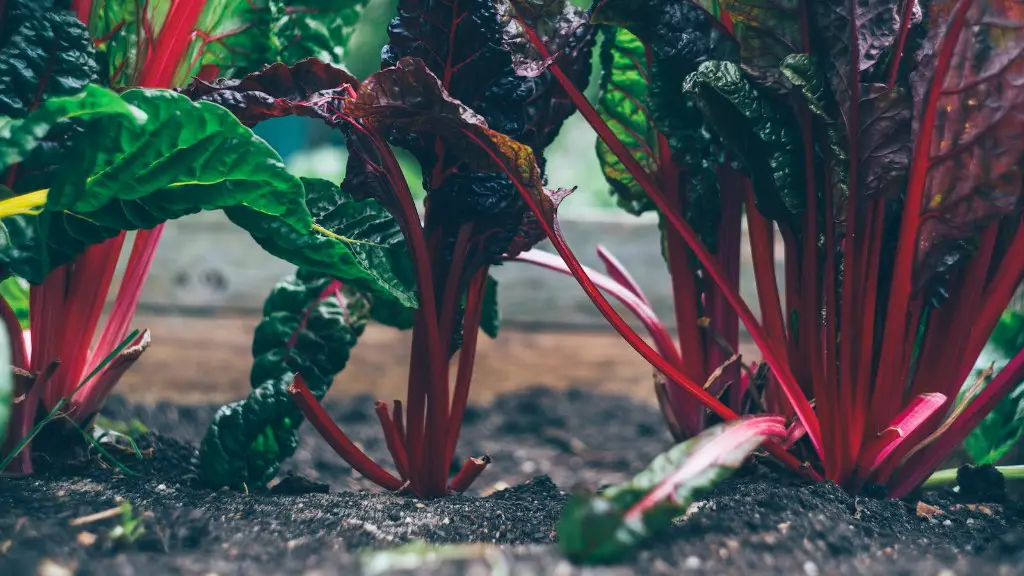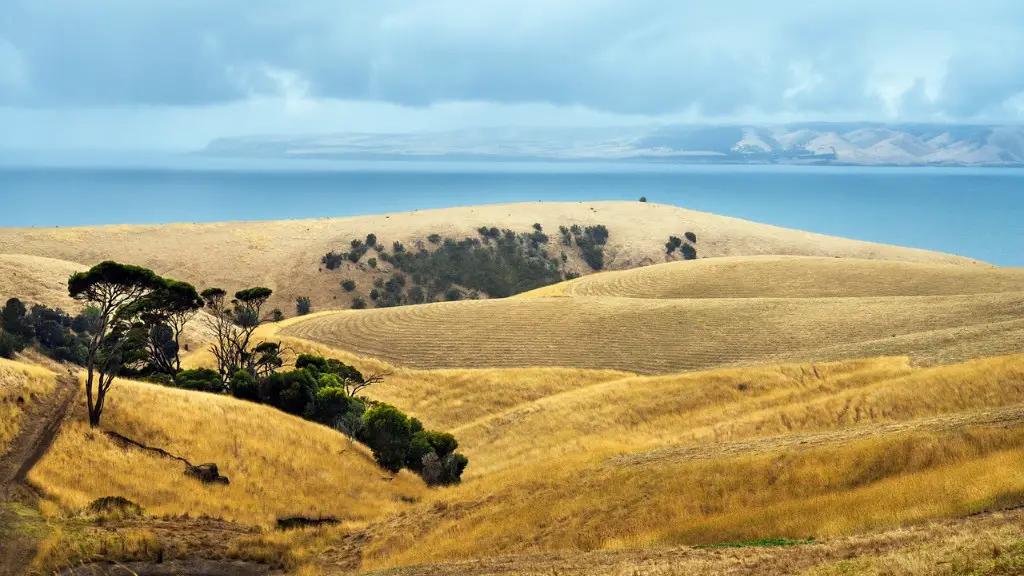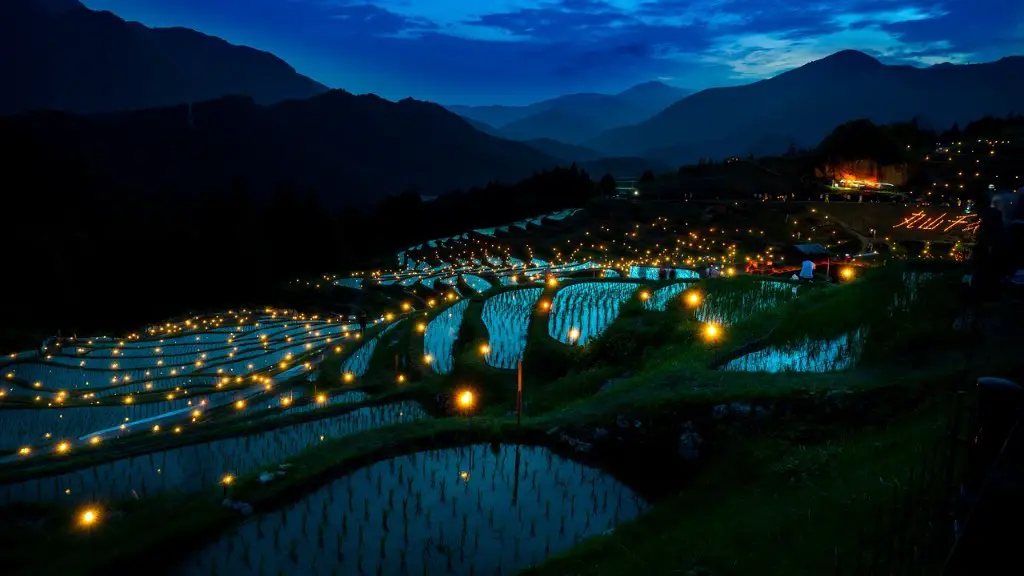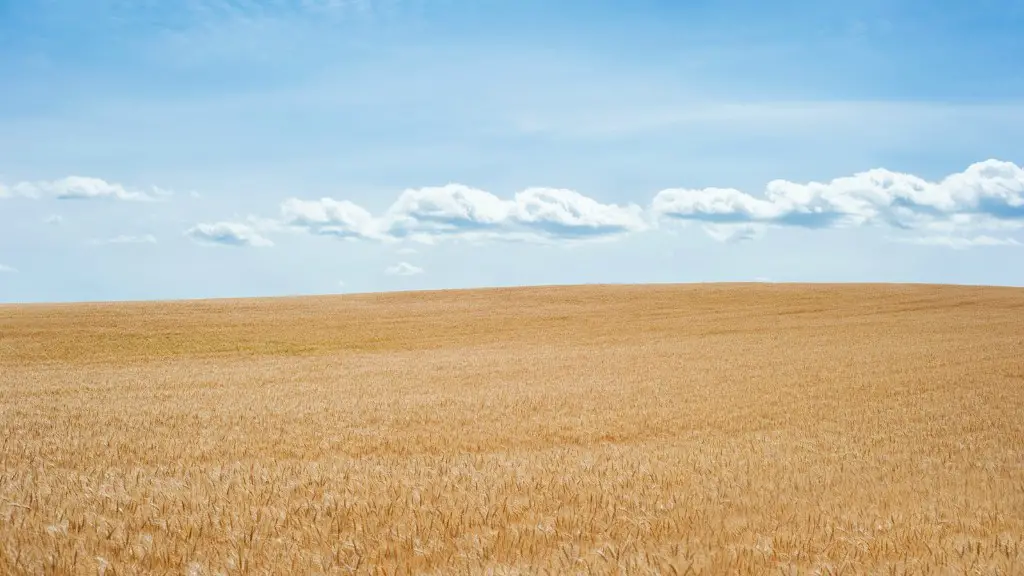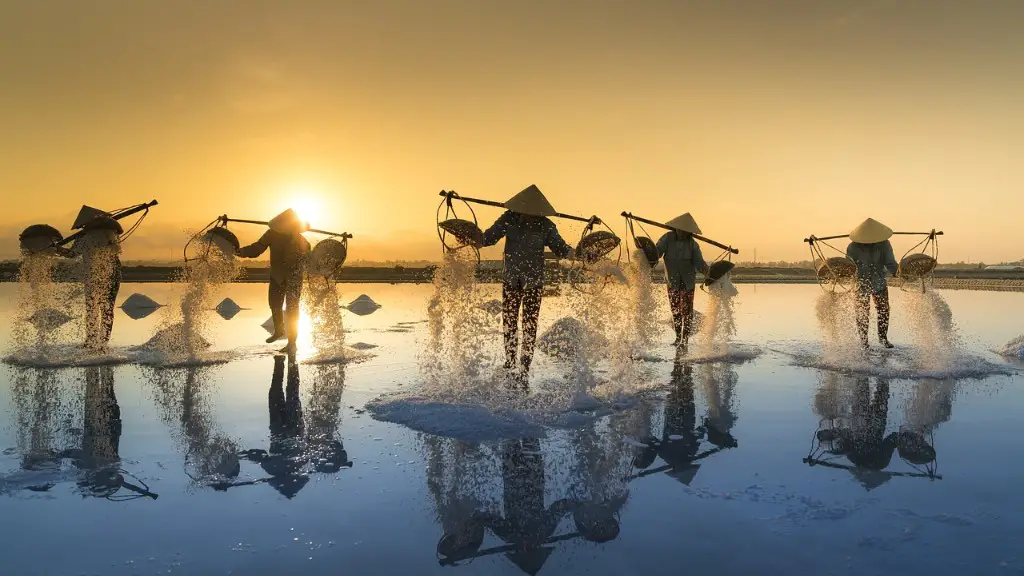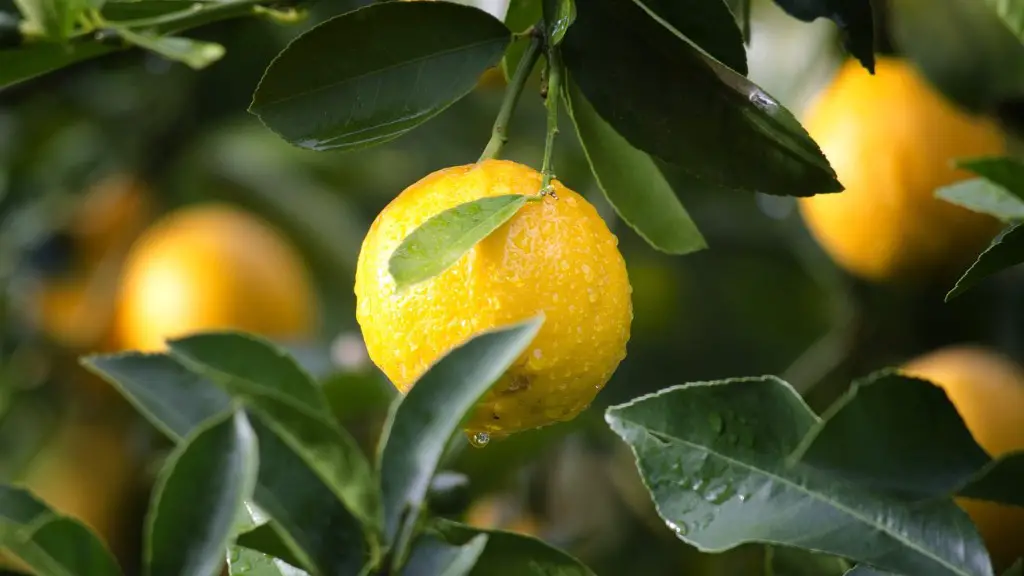Agriculture is vital to the survival of humans and the eco system. It provides food, fiber, and many other essential products for us. It also helps to replenish the soil with nutrients and helps to control pests and diseases.
Yes, agriculture is considered a good thing by many people. Agriculture provides people with food, fiber, and many other products. It also creates jobs and supports economies.
What are the disadvantages of agriculture?
While large-scale, conventional farming yields high production levels, it also contributes to climate change, pollutes air and water, and depletes soil fertility. This system focuses on intensive single crop production, mechanization, and depends on fossil fuels, pesticides, antibiotics, and synthetic fertilizers.
When early humans began farming, they were able to produce enough food that they no longer had to migrate to their food source. This meant they could build permanent structures, and develop villages, towns, and eventually even cities. Closely connected to the rise of settled societies was an increase in population.
What are pros and cons of agriculture
The domestication of wheat, corn, and rice was a key turning point in human history. Agriculture allowed for the specialization of human labor, which lead to the development of distinct roles such as artist, leader, and scribe. This allowed humans to become experts in their field and create civilizations. However, agriculture also lead to conflicts over access to the food supply and weather damage to crops.
Agriculture has been a key factor in the growth of cities and civilizations. By farming crops and animals, we have been able to meet the demands of a growing population. Today, there are more than seven billion people on the planet, thanks in part to the advances made in agriculture.
What is the biggest problem in agriculture?
These two problems are interconnected, as the loss of agricultural land leads to a decrease in the variety of crops and livestock that can be produced. This in turn leads to a decline in the overall productivity of agriculture, which can have a significant impact on the food security of a region or country.
There is no silver bullet for addressing the triple challenge of feeding a growing population, providing a livelihood for farmers, and protecting the environment. We must take a holistic and integrated approach to make sustainable progress in all three areas.
One important step is to set the table for success by creating an enabling environment that supports collaboration and innovation. This means creating policies, regulations, and incentives that encourage all stakeholders – government, business, and civil society – to work together towards common goals.
Another key step is to invest in research and development to find new and better ways of doing things. This includes everything from developing new crop varieties to improving irrigation and farming practices.
We also need to educate and empower people, especially women and girls, so that they can play a leading role in shaping their own future. And finally, we must all work together to build a more sustainable and equitable food system that meets the needs of current and future generations.
Is agriculture still important today?
The agricultural and food sectors are a vital part of the US economy, providing 105 percent of total US employment. In 2021, these sectors are expected to provide 211 million full- and part-time jobs. The agricultural sector alone is responsible for 16 percent of US GDP, while the food sector contributes an additional 4 percent. The sector is also a major employer of women and minorities.
1. Agriculture is the main source of raw materials for many industries.
2. It is important to international trade.
3. It plays a big role in a nation’s revenue.
4. It provides employment.
5. It’s crucial to a country’s development.
6. It can help heal the environment.
7. It goes hand-in-hand with war.
8. It can be a source of food security.
9. It can help preserve culture and tradition.
10. It can be a source of renewable energy.
Can humans live without agricultural
Agriculture is essential for human survival and the modern civilization. Sustainable agriculture, climate-smart agriculture, modern genetics and improved farming methods are necessary to ensure global food security. These practices will help us maintain a steady food supply, while also protecting the environment.
Agriculture is critical to society in many ways. It provides food for people to live and jobs for people to work. It also provides raw materials for food and other products, and builds strong economies through trade.
What are at least 3 cons to our agricultural practices?
Agricultural practices have been found to have a wide variety of effects on the environment. Animal agriculture, in particular meat production, can cause pollution, greenhouse gas emissions, biodiversity loss, disease, and significant consumption of land, food, and water. Despite this, many people continue to consume meat on a regular basis. This is likely due to the taste of meat, as well as the wide variety of products that are available.
Farm work is an excellent way for adults to get exercise, enjoy fresh air, and appreciate the land and animals. It can also be very satisfying work, providing opportunities for problem solving and a sense of accomplishment.
What was the biggest mistake in human history
Agriculture is definitely one of the biggest mistakes in human history. It has led to a lot of environmental problems and it is one of the big reasons why we have so many mouths to feed today. However, we can’t really change it now and we just have to make it work better.
Agriculture is a vital sector for reducing poverty, raising incomes and improving food security for the majority of the world’s poor. Over 80% of the world’s poor live in rural areas and are dependent on agriculture for their livelihoods.
Increasing agricultural productivity is essential for reducing poverty and hunger. Investments in agricultural research and development, and in programmes to improve farmers’ access to inputs and services, can make a significant difference.
Agricultural growth also creates opportunities for non-farmers, and can help to reduce rural-urban migration. It is therefore essential for sustainable development.
What would happen if humans never developed agriculture?
Agriculture has been a key driver of human civilization, allowing us to domesticated plants and animals and settle into communities. Without agriculture, we would be restricted to the resources that we could gather ourselves, and would be subject to the whims of nature. Our population would be limited by the amount of food we could produce, and we would be subject to severe famines and diseases. However, with agriculture, we have been able to support ever-growing populations and create thriving civilizations.
Hunter-gatherers have little or no stored food, and no concentrated food sources, like an orchard or a herd of cows: they live off the wild plants and animals they obtain each day. This means that they are constantly on the move, following the herds and the seasons. This lifestyle is very demanding, and requires a great deal of skill and knowledge.
Farming changed all that. Farmers stay in one place, and grow their own food. They have to work hard, but they are not constantly on the move. This means that they can develop more complex cultures, with division of labor and class divisions. Farmers can afford to specialize in things like making pottery or tools, and they can trade for things they cannot produce themselves.
The division of labor and the development of complex cultures are great achievements. But they come at a price: the farmers are much more vulnerable to starvation and disease. A bad harvest can mean starvation for the whole community. And if an epidemic comes through, it can kill hundreds or even thousands of people.
The rise of farming brought a curse upon humanity: deep class divisions. The hunter-gatherers were equal, because they all had to do the same hard work. But the farmers are
Warp Up
There are a few different ways to answer this question. On one hand, agriculture provides people with food and drink, and helps to sustain life. On the other hand, agriculture can also have negative impacts on the environment, and can lead to pollution and deforestation. So, the answer to this question is not entirely clear.
The conclusion for this topic is that agriculture is a good thing. It provides food for people and animals, saves lives, and helps the economy. Agriculture is also a great way to improve the environment.
